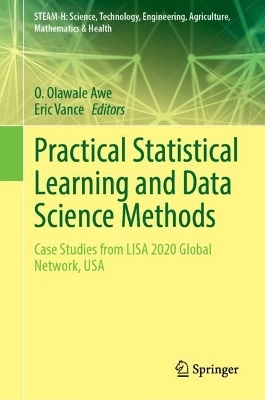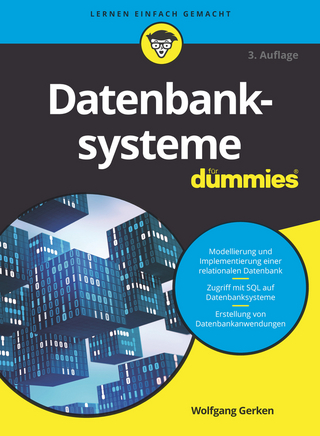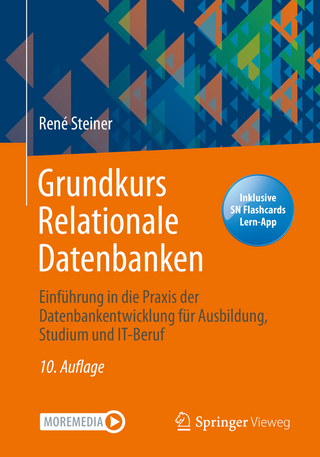
Practical Statistical Learning and Data Science Methods
Springer International Publishing (Verlag)
978-3-031-72214-1 (ISBN)
- Noch nicht erschienen - erscheint am 05.02.2025
- Versandkostenfrei innerhalb Deutschlands
- Auch auf Rechnung
- Verfügbarkeit in der Filiale vor Ort prüfen
- Artikel merken
This contributed volume offers practical implementation strategies for statistical learning and data science techniques, with fully peer-reviewed papers that embody insights and experiences gathered within the LISA 2020 Global Network. Through a series of compelling case studies, readers are immersed in practical methodologies, real-world applications, and innovative approaches in statistical learning and data science.
Topics covered in this volume span a wide array of applications, including machine learning in health data analysis, deep learning models for precipitation modeling, interpretation techniques for machine learning models in BMI classification for obesity studies, as well as a comparative analysis of sampling methods in machine learning health applications. By addressing the evolving landscape of data analytics in many ways, this volume serves as a valuable resource for practitioners, researchers, and students alike.
The LISA 2020 Global Network is dedicated to enhancing statistical and data science capabilities in developing countries through the establishment of collaboration laboratories, also known as "stat labs." These stat labs function as engines for development, nurturing the next generation of collaborative statisticians and data scientists while providing essential research infrastructure for researchers, data producers, and decision-makers.
O. Olawale Awe holds a PhD in Statistics from the University of Ibadan, Nigeria, and an MBA from Obafemi Awolowo University, Ile-Ife, Nigeria. He currently serves as the Vice President of the International Association for Statistics Education (IASE). His affiliations include being an Elected Council Member of the International Statistics Institute (ISI), Vice President of Global Statistical Engagements of the LISA 2020 Global Network, USA, and a research professor and machine learning team leader at the Statistical Learning Laboratory (SaLLy) of the Federal University of Bahia, Brazil. He has published more than 100 research papers in international and national journals and conferences, and he has also published five books and monographs. As the pioneering LISA Fellow of the LISA 2020 Global Network at the University of Colorado, Boulder, USA, he has significantly contributed to the global statistical community.
Eric A. Vance is an Associate Professor of Applied Mathematics and the Director of the Laboratory for Interdisciplinary Statistical Analysis (LISA) at the University of Colorado Boulder, USA. He is the Director of the LISA 2020 Global Network. He is an Elected Member of the ISI and a Fellow of the American Statistical Association (ASA). Dr. Vance researches what individual statisticians and data scientists need to know to become effective interdisciplinary collaborators and what institutions can do to promote interdisciplinary collaboration to make data-driven decisions. He was the 2023 winner of the ASA's W.J. Dixon Award for Excellence in Statistical Consulting.
.- Effects of Imputation Techniques on Predictive Performance of Supervised Machine Learning Algorithms: Empirical Insights from Health Data Classification.
.- Predicting Air Quality in an Urban African City Using Four Comparative Novel Time Series Models.
.- Obesity Classification Using Weighted Hard and Soft Voting Ensemble Machine Learning Classifiers.
.- Predictive Modeling for Disease Diagnosis Using Calibrated Algorithms: A Comparative Study.
.- Predicting Precipitation Dynamics in Africa Using Deep Learning Models.
.- Enhancing Predictive Performance through Optimized Ensemble Stacking for Imbalanced Classification Problems.
.- A Comparative Exploration of SHAP and LIME for Enhancing the Interpretability of Machine Learning Models in BMI Classification.
.- Decision Tree Planning Strategies for Predicting Obesity.
.- Clustering Multiple Time Series with SSA.
.- Spine-Based Calibration for Classification Algorithms: An Experimental Comparison of Various Imbalanced Ratios.
.- Exploring the Applicability of Advanced Exponential Smoothing and NN Models for Climate Time Series Forecasting: Insights and Changepoint Prediction in the Brazilian Context.
.- A Comprehensive Forecasting Experiment on Temperature Trends Across Thirty-Two American Countries.
.- A Comparative Analysis of Sampling Methods for Imbalanced Data Classification in Machine Learning Health Applications.
.- Comparative Analysis of MCC, F1-Score, and Balanced Accuracy Metrics for Imbalanced Health Data Classification.
.- Basics of R- Shiny for developing Interactive Visualizations.
| Erscheint lt. Verlag | 5.2.2025 |
|---|---|
| Reihe/Serie | STEAM-H: Science, Technology, Engineering, Agriculture, Mathematics & Health |
| Zusatzinfo | XXIX, 756 p. 230 illus., 208 illus. in color. |
| Verlagsort | Cham |
| Sprache | englisch |
| Maße | 155 x 235 mm |
| Themenwelt | Mathematik / Informatik ► Informatik ► Datenbanken |
| Schlagworte | Data Classification • Data Science • Deep learning models • lime • Local interpretable model-agnostic explanations • machine learning • Machine learning classifiers • Predictive Modeling • Shap • Shapley Additive Explanation • Statistical Learning • Time Series |
| ISBN-10 | 3-031-72214-0 / 3031722140 |
| ISBN-13 | 978-3-031-72214-1 / 9783031722141 |
| Zustand | Neuware |
| Informationen gemäß Produktsicherheitsverordnung (GPSR) | |
| Haben Sie eine Frage zum Produkt? |
aus dem Bereich


